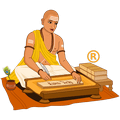























Sunrise04:35
Sunset21:46
Moonrise11:58
Moonset00:21, Jul 02
Shaka Samvat1947 Vishvavasu
Vikram Samvat2082 Kalayukta
Gujarati Samvat2081 Nala
Amanta MonthAshadha
Purnimanta MonthAshadha
WeekdayMangalawara
PakshaShukla Paksha
TithiShashthi upto 05:50
NakshatraUttara Phalguni upto Full Night
YogaVyatipata upto 12:49
KaranaTaitila upto 05:50
KaranaGaraja upto 18:34
Pravishte/Gate17
Rahu Kalam17:28 to 19:37
Gulikai Kalam13:10 to 15:19
Yamaganda08:53 to 11:02
Abhijit12:36 to 13:45
Dur Muhurtam08:01 to 09:10
Dur Muhurtam00:30, Jul 02 to 00:57, Jul 02
Amrit Kalam22:45 to 00:30, Jul 02
Varjyam12:16 to 14:01
Notes: All timings are represented in 24-hour notation in local time of Bishop Auckland, United Kingdom with DST adjustment (if applicable).
Hours which are past midnight are suffixed with next day date. In Panchang day starts and ends with sunrise.



 Simha
Simha Magha 26:50+
Magha 26:50+

 Simha
Simha P Phalguni 28:24+
P Phalguni 28:24+

 Simha 10:54
Simha 10:54 U Phalguni
U Phalguni

 Kanya
Kanya U Phalguni 06:37
U Phalguni 06:37

 Kanya 22:49
Kanya 22:49 Hasta 09:20
Hasta 09:20

 Tula
Tula Chitra 12:20
Chitra 12:20

 Tula
Tula Swati 15:21
Swati 15:21

 Makara
Makara Shravana 26:23+
Shravana 26:23+

 Makara 14:23
Makara 14:23 Dhanishtha 26:19+
Dhanishtha 26:19+

 Kumbha
Kumbha Shatabhisha 25:56+
Shatabhisha 25:56+

 Kumbha 19:28
Kumbha 19:28 P Bhadrapada 25:16+
P Bhadrapada 25:16+

 Meena 23:09
Meena 23:09 Revati 23:09
Revati 23:09

 Mesha
Mesha Ashwini 21:44
Ashwini 21:44

 Mesha 25:42+
Mesha 25:42+ Bharani 20:07
Bharani 20:07

 Vrishabha 27:45+
Vrishabha 27:45+ Rohini 16:37
Rohini 16:37

 Mithuna
Mithuna Ardra 13:24
Ardra 13:24

 Mithuna 06:29
Mithuna 06:29 Punarvasu 12:13
Punarvasu 12:13

 Simha 19:30
Simha 19:30 P Phalguni 13:05
P Phalguni 13:05

 Kanya 06:45
Kanya 06:45 Chitra 20:11
Chitra 20:11

 Tula
Tula Swati 23:10
Swati 23:10

 Tula 19:22
Tula 19:22 Vishakha 26:05+
Vishakha 26:05+In Hindu Calendar, the day starts with local sunrise and ends with next day local sunrise. As sunrise time is different for all cities, Hindu Calendar made for one city is not valid for any other city. Hence it is important to use location based Hindu Calendar, like this website. Further, each Hindu day consists of five elements, which are called angas. These five elements are -
In Hindu Calendar, all five elements together are called Panchang. (In Sanskrit: Panchang = Pancha (five) + Ang (part)). Hence Hindu Calendar which shows all five elements for each day is called Panchang. In South India Panchang is known as Panchangam.
When Hindu Calendar includes Muslims, Sikh, Christian, Buddhist and Jain festivals, including national holidays, it is called as Indian Calendar.